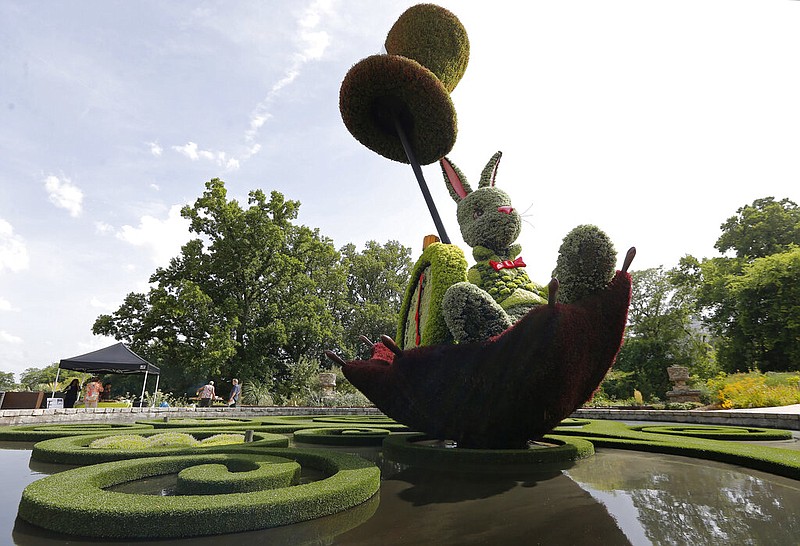The Atlanta Botanical Garden is growing.
Adding its first new acreage since the garden was incorporated in the 1970s, the Midtown greenspace will expand along Piedmont Avenue toward Monroe Drive at its northern tip.
During the past four years the garden's administrators have, with the help of private donations, been buying commercial properties along Piedmont Avenue that are surrounded by the garden and Piedmont Park.
The parcels they've purchased include a clothing store, a dry cleaner, a restaurant, offices and a storage facility. The garden coordinated its efforts with the Piedmont Park Conservancy, which has plans to convert commercial property at the same intersection into parkland.
When both Piedmont Park and the Botanical Garden have completed their plans to grow, they will create a combined green space stretching from 10th Street in the south to just below Ansley Mall. The park, the garden and the Beltline will come together at a "node" in that northern corner.
Mary Pat Matheson, the garden's president and chief executive officer, said perhaps the most significant aspect of the project is that it will coincide with the completion of the northeastern leg of the Beltline pedestrian and biking corridor.
"This will transform the way people can get to the garden now," she said.
Thousands use the trail every day. The garden plans to draw that group into the facility with a new visitor's center bordering the Beltline and new attractions in the expanded acreage, such as a conservatory, a water feature and a beer garden.
In general the garden would have resisted opening a second visitor's center, which would require more personnel and would complicate logistics, "but when we can have an entrance on a major walking corridor, that changes everything," Matheson said.
She compared the impact on the garden to the impact on the new Whitney Museum in Manhattan, which in 2015 moved from its Brutalist building on Madison Avenue to a prime spot downtown at the base of the High Line pedestrian path. Like the Whitney, the garden will be a major cultural center on a major walking path.
"We plan to bring our pioneering spirit to this new part of the garden, combining art, water and gardens in compelling and beautiful displays," she said.
The Botanical Garden and its sister green space, Piedmont Park, have been planning parallel expansions since 2018. In 2016, during his final weeks as mayor of Atlanta, Kasim Reed announced at a news conference that the city would commit $20.4 million to buy more land for Piedmont Park.
Since then the city has bought commercial property near that same intersection of Piedmont and Monroe.
Mark Banta, president and chief executive officer of the Piedmont Park Conservancy, the non-profit that manages the park, said the park is planning for the conversion of that commercial property into parkland. It is unclear when that process will begin.
A path carved out for the next phase of the Beltline hugs the entire eastern border of Piedmont Park. When that path is complete, "it will have an incredible pedestrian impact, in a positive way, on the park," said Banta.
"It's really a neat coalescence of the Beltline, the garden and the park," he said.
To dovetail with those changes, during the past four years leaders of the Botanical Garden began seeking contributions from private donors to acquire the "island" of commercial property at its northern end.
Matheson said the total cost of the acquisitions will be about $50 million. When those parcels are secured, she said, the garden will begin clearing most of the buildings. One exception will be the 100-year-old structure on Piedmont Avenue that houses the Boy Next Door men's clothing store.
"We want to preserve history," Matheson said, "so the goal would be to keep that building and use it for some garden function."
This story was first published in The Atlanta Journal-Constitution.
